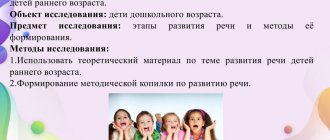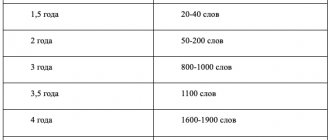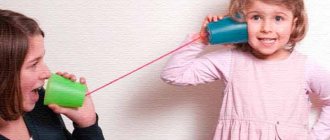Vocabulary is the number of words that a person understands and uses in speech. Moreover, he uses some of them, but not the other. Thanks to speech, we communicate with each other, expressing our thoughts and conveying them to our interlocutor, forming beliefs and developing intellectually. The richer, more literate and expressive a person’s speech is, the higher his level of education and cultural development is considered.
The lexical dictionary of children and adults consists of two categories:
- Active vocabulary is words that a person uses regularly in speech and writing.
- Passive vocabulary - consists of words that a person knows and perceives by ear, but does not use himself. Significantly exceeds the active dictionary.
There is no exact answer to what an adult’s reserve should be. For example, the dictionary of V.I. Dahl contains more than 200 thousand words, the academic dictionary of the Russian language - approximately 130 thousand words, the latest edition of the dictionary by S.I. Ozhegova – 70 thousand words. Obviously, even the most erudite people do not speak such a volume of vocabulary. According to the latest research data, an adult’s active vocabulary ranges from 5 thousand to 35 thousand words, passive - from 20 thousand to 100 thousand words.
Online tests help you check your vocabulary and evaluate it. But the results for the same person over different periods of time may differ, since he is constantly developing - he learns new words, but at the same time forgets or stops using previously learned ones.
As a rule, people with a rich vocabulary have more prospects, achieve goals faster, and achieve success in their careers, management, and show business. According to the majority, their work is more interesting, creative, extraordinary, and their achievements are higher. The same applies to your personal life. A person with a large vocabulary better formulates his thoughts, verbalizes desires and emotions, and due to this, he better finds a common language with people.
Vocabulary can be compared to a snowball: the more complex concepts a person knows, the more new words and terms he is able to perceive, remember and use in his speech. This is why it is necessary to develop a child’s speech from early childhood.
Balance of active and passive vocabulary, or why develop speech?
A passive dictionary will always be larger in volume than an active one. At the same time, we should strive to achieve a balance between dictionaries, that is, try to use as many words as possible that we know in everyday speech. And teach this to our children. For what?
In modern society, people who can speak well and interestingly, with developed oratory skills, are valued. The ability to express one’s thoughts clearly and beautifully, captivate the audience, and win the interlocutor to one’s side will help the child in school, in communicating with peers, and throughout life. In addition, an increase in vocabulary entails the development of intelligence, memory, attention, imagination and perception.
A child with a rich vocabulary communicates more easily with adults and other children, and accordingly, adapts better in society. It is easier for such children to learn poetry, solve logical problems, create, and, in general, realize themselves.
How to calculate the volume of active and passive vocabulary?
Finding out the approximate number of words in a passive dictionary is easy. It is enough to ask the child to show a certain object, action, object (for example, a cat). If the child did everything correctly, then the word is counted in the passive dictionary.
Now let’s calculate the size of the active dictionary. What should you consider?
- Words that the child pronounces clearly: “give”, “mom”, “dad”.
- Onomatopoeia for animals and objects: car “beep-beep”, dog “woof-woof”.
- Reproduction of incomplete words: “baka” - dog.
- Words that are pronounced incorrectly, but the number of syllables and stress are correct: “patina” - machine.
- Words that are pronounced the same, but have different meanings (this is the norm up to 2.5 years): “ma” - mom, car, meow (each word is counted separately).
“To make it easier to count active vocabulary and clearly see the progress and dynamics of a child’s development, you need to keep a diary of speech development. Every month you can enter the words that your child has mastered. From 2.5-3 years old, keeping track of every word will be quite difficult due to the growing talkativeness. Then you can write down the baby’s funny sayings in your diary, which you will be happy to re-read in the future,” the speech therapist advises.
Explore Science and Art
A new area of study involves new knowledge, new definitions and concepts. For example, having started training at an acting school, a child will be immersed in the world of theater and art, learn to perform on stage, and memorize monologues. In the Children's Producer's Department, students in theater courses learn public speaking, but also get acquainted with the history of the theater, learn about the development of this art form, and the lives of famous actors. This enriches the child’s vocabulary with new concepts and verbal constructions.
The same applies to other professional areas. At modern choreography lessons, a child will be introduced to the concepts of “plie” and “pivot”, at an art school for children he will learn what “outline” and “foreshortening” are, and chess classes will bring the concepts of “endgame” and “outpost” to his vocabulary. , "castling".
Describe, reason, speak!
You can describe both the surrounding reality and works of art. For example, ask your child to tell you what is drawn in a famous painting or talk about the meaning of a movie you recently watched. It is useful to play educational games with children. Here are some of them:
- “Guess what it is?”: the parent describes a phenomenon or object to the child without using its name. The child's task is to guess what the parent is describing. Then you need to switch roles.
- “Let’s make up a fairy tale”: the adult begins to tell the story, and the child continues.
- “Adjective plus noun”: the adult names the adjective, and the child names the noun that goes with it. It would be interesting if points would be awarded for each word - the more unusual and beautiful the phrase, the more points.
- “I Know Five”: the parent sets a topic (for example, animals), the child’s task is to name five words in this topic in a short time.
Pupils of the Children's and other television projects perform in charity concerts.
Your children can do this too! In the disciplines “Integrated Development”, “Early Development”, “Acting for Children” they will develop the talent of a storyteller, master the techniques of effective communication and enrich their speech with beautiful turns of phrase and new words. Come to us!










